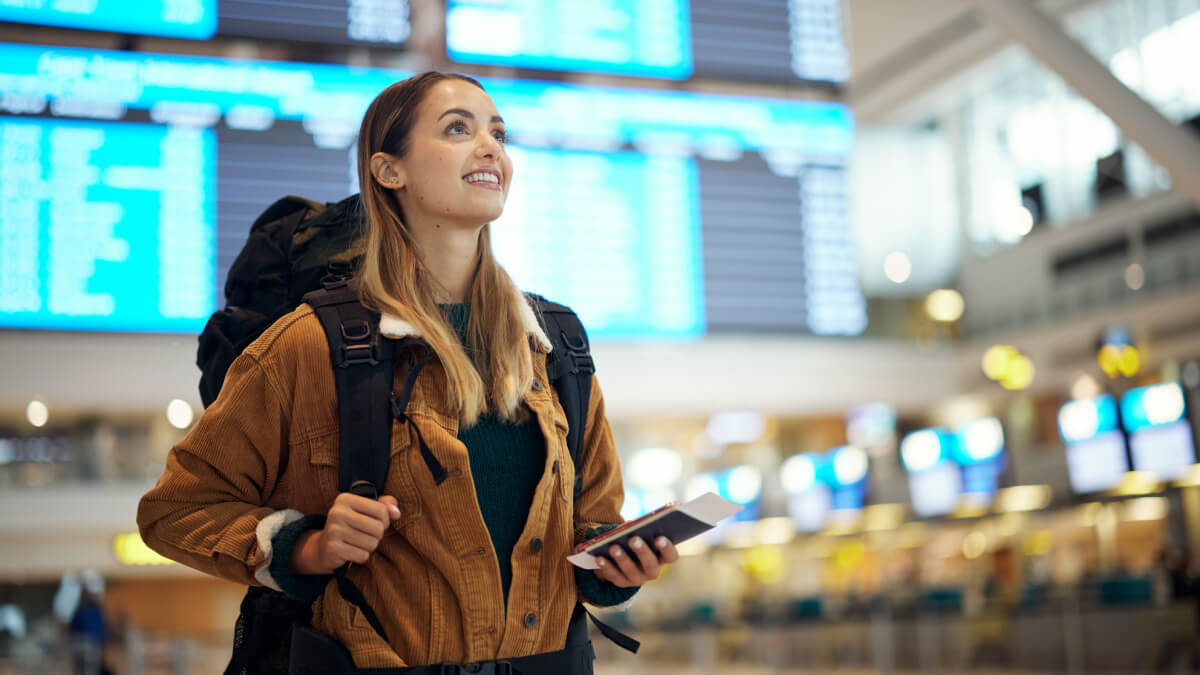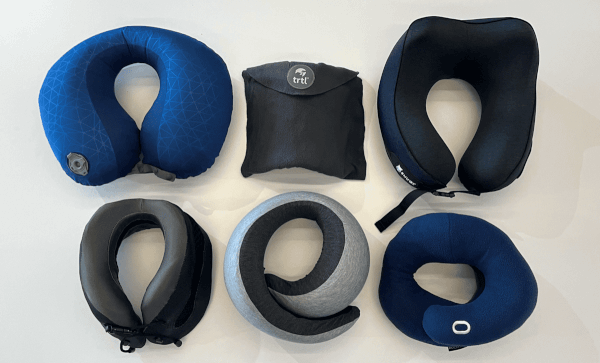How to Get from Sydney Domestic to International: Terminal Transfer Guide
The definitive guide to Sydney Airport terminal transfer. Find the best way to get from Domestic to International, including walk times and shuttle options.

Australians make up the largest proportion of all visitors to Fiji. And it’s easy to see why. From diving and fishing to trekking and taking in some of Fiji’s rich cultural history - there are plenty of reasons to visit. With an amazing 333 islands to choose from, you’re sure to find the perfect destination whatever you’re looking for.
Fiji is a great place for luxury travel - but even if you’re taking the high end trip of a lifetime, you want your money to go as far as possible. This guide will touch on how to cut costs - and make the most of your time - with a Wise borderless account and linked Mastercard.
Fiji is a justifiably popular destination for visitors from all over the world. You’ll get more from your trip if you do some research before you head off, to plan your accommodation and itinerary and check out the specific details you need for your perfect holiday.
For example, don’t forget to research the best ways to get to your accommodation from the airport, to get your break off to a smooth start. You’ll also want to check out the weather before you book, as cyclones and flooding can cause a hazard at some times of year. Finally, if you plan on driving while you’re in Fiji, get your International Driving Permit (IDP) before you leave home.
You’ll find lots of great ideas and inspiration on the Fiji tourist authorities’ website¹, and for information on safety and visas, check out the Fiji page on the Smart Traveller website².
Don’t waste money on unnecessary bank fees, or unexpected costs associated with currency exchange. Here are some smart ways to make your money go further when you travel.
It’ll make it easier to keep on top of your spending if you know the exchange rate for your destination. You can do this easily with an online currency converter or app, which will give you the mid-market rate for your currency pairing.
To make sure you’re getting a good deal when exchanging currency, compare the rates you’re offered against the mid-market exchange rate. That’s a good benchmark because banks and currency services get the mid-market rate when they buy currencies themselves. However, they often add a markup to the rate they make available to their customers - which can make it more expensive than you expect to spend overseas.
You can avoid paying this extra margin - and cut your costs overall - by using the Wise borderless account and card. More on that later.
You’ll find local ATMs around Fiji, and will be able to pay using a card when you’re in stores and restaurants. However, you’ll want to check to see if your bank or card provider will charge you to spend or make cash withdrawals overseas.
Read the terms of your account carefully, to look for foreign currency fees which may be flat fees, a percentage charge per transaction - or both. These charges may be unexpected - and can quickly mount up.
DCC is something to avoid when using your card overseas - in Fiji or anywhere else in the world.
DCC is where you’re given the option to pay in either your home currency or the local one when you spend or make a cash withdrawal abroad. Using your home currency sounds like it might be the easier option because you avoid the mental maths needed to convert the costs. But it will usually come with fees.
Always opt to pay in the local currency to get the best exchange rate and lowest fees.
You can cut a lot of the costs and hassle of spending abroad with a specialist account like the Wise borderless account.
This multi-currency account lets you hold, send and spend foreign currencies, and you can open and manage your account entirely online. Get a Wise borderless Mastercard, to spend and make cash withdrawals like a local with no foreign transaction fees. All currency conversion is done using the mid-market exchange rate, and you’ll only ever pay a low, transparent charge to exchange currency.
See if you can save when you travel to Fiji, with Wise.
The Australian government recommends taking normal safety precautions when in Fiji. Crime happens, but as at home, it’s largely opportunistic, and more of a problem after dark. Take care of your possessions and be aware of your surroundings, as you would need to be in any new place.
One important thing to note is that the medical services in Fiji aren’t as good as those available in Australia. If you are seriously ill or injured you may well need a medical evacuation, so get appropriate insurance, and make sure it covers all eventualities.
The Australian consular service may be able to help if you have trouble when abroad. Check out the information, fact sheets and contact information available on the Smart Traveller website³.
Australians heading to Fiji for tourism usually don’t need a visa. In most cases, a visit of up to 90 days will be fine without extra paperwork - although you’ll need a valid passport which has a blank page for an entry stamp.
If you’re going to Fiji for work, for a long stay, or have any other questions relating to visas, check out the information available from the Fiji High Commission here in Australia⁴.
The Rough Guide⁵ warns that accommodation on Fiji isn’t as cheap as you might expect - making it important to shop around and ideally find somewhere to stay before travelling. That said, there’s a wide range of accommodation types to choose from, including dorms and hostels, hotels, guest houses and resorts.
It’s worth being aware that some resorts are very remote. Great if you want to relax on the beach, and are happy eating in the same place for the entire break - less so if you really want to get off the tourist trail and explore. For cheap dorm beds, check out hostels - more commonly called backpacker resorts - which can be found in towns and on the islands.
Slightly more upmarket, you’ll find guest houses, and bed and breakfast places - from F$60 upwards in most cases. Beyond that you have hotels, inns and boutique resorts - with a price tag which reflects the level of luxury you select.
Unsurprisingly, boats and ferries of all types are an important way to travel in Fiji.In fact only the larger islands have road networks, so chances are you’ll be on the water a fair bit if you want to really explore.
On the largest two islands - Viti Levu and Vanua Levu - you can hire a car or take a bus to get around. Alternatively get a taxi or hire a driver for your stay. Motorbikes are not common, and can be risky⁶.
If you want a faster way to get around, you can also take short internal flights or even take a helicopter. Find listings of transport providers on the Fiji tourism web pages, for reference⁷.
You’re spoiled for choice in Fiji. While some visitors just want to hit the beach and stay there, you can also get out and about and make your break more active if you like. Here are a few ideas.
If you fancy a trip to Fiji, there’s no time like the present. Before you book up, here are a few more tips to think about
Whether you’re there for a budget break or a trip of a lifetime, Fiji is an excellent destination to soak up some sun, explore the beautiful natural surroundings, and eat and drink to your heart’s content. Make the most of it by cutting your currency costs with a Wise borderless account and linked Mastercard - and have fun!
Sources:
All sources accurate as of Jan 15 2020
*Please see terms of use and product availability for your region or visit Wise fees and pricing for the most up to date pricing and fee information.
This publication is provided for general information purposes and does not constitute legal, tax or other professional advice from Wise Payments Limited or its subsidiaries and its affiliates, and it is not intended as a substitute for obtaining advice from a financial advisor or any other professional.
We make no representations, warranties or guarantees, whether expressed or implied, that the content in the publication is accurate, complete or up to date.

The definitive guide to Sydney Airport terminal transfer. Find the best way to get from Domestic to International, including walk times and shuttle options.

Looking for a travel card to use overseas? We compared the fees, features, and benefits of two top travel cards: Ubank vs Wise, for Australian travellers.

The most cost-effective ways to get foreign currency. Compare banks, exchange services, and ATMs with tips to avoid hidden fees and get the best exchange rates.

Layover in Singapore? Find out if you can leave the airport, check eligibility for free city tours, and see the ultimate itinerary for your stopover.

Compare 6 top travel pillows on support, comfort, portability, and value for your travels like long flights. Find the best neck pillow to fit your needs.

Planning a trip to Ireland? Discover if tap water is safe to drink for travellers. This is your guide on Ireland's water quality.